Introduction
Navigating adolescence is challenging, especially with the added complexities of peer pressure. While often perceived negatively, peer influence also offers opportunities for positive growth. As parents and guardians, equipping teens with the proper tools not only helps them resist negative influences but also empowers them to harness peer relationships for positive development. Let’s explore eight effective approaches that can aid your teenager in managing peer pressure with resilience and confidence.
Key Facts on Navigating Peer Pressure for Teens
- Open Communication fosters trust and strong relationships between parents and teens.
- Encouraging Self-Esteem is crucial as it enables teens to withstand peer pressure confidently.
- Assertiveness Skills are essential; teens must learn to express boundaries firmly and clearly.
- Positive Peer Influence can guide teens towards healthy behaviors and decisions.
- Decision-Making Competence equips teens to evaluate choices, reducing the impact of negative influences.
- Stress Management Techniques such as mindfulness are vital for coping with peer pressure.
- Support Systems including trusted adults and positive friendships help teens navigate peer dynamics.
- Practicing Refusal Skills through role-play prepares teens for real-life pressure situations.
- Technology Resources like mental health apps can support emotional resilience and coping strategies.
- Identifying Signs of Peer Pressure allows parents to intervene and guide teens effectively.
1. Encouraging Open Communication
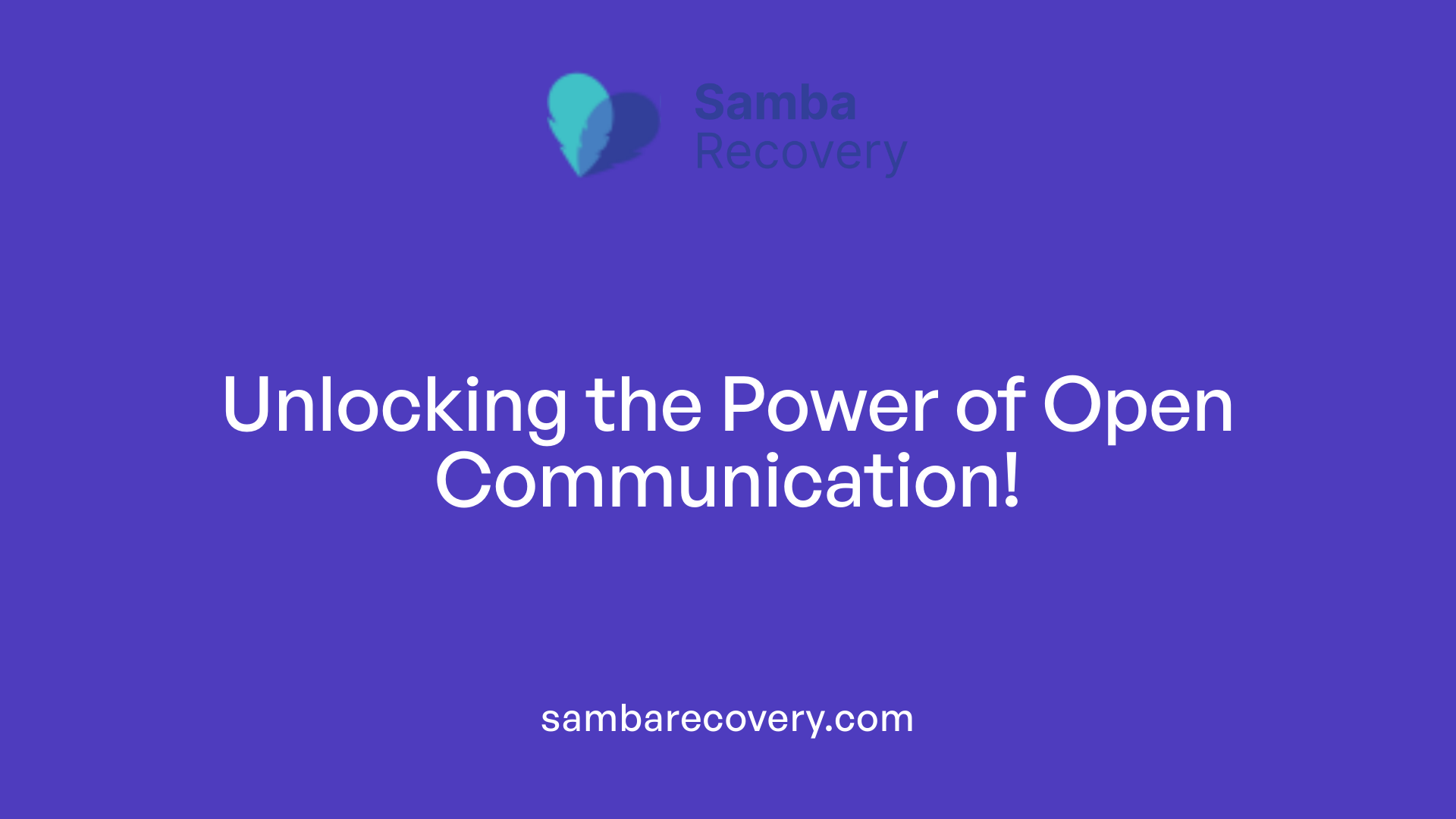
Importance of Creating Open Dialogue
Creating an environment where teenagers feel safe to share their thoughts and experiences is crucial in today’s society. Open communication fosters trust and establishes strong relationships between parents and teens. When parents share their expectations and values regarding peer pressure, they equip their teenagers with tools to navigate complex social situations.
It’s essential to discuss not only the negative aspects of peer pressure but also the positive influences that can encourage healthy behaviors. Regularly talking about these topics helps teens understand their feelings and encourages them to express themselves freely. The ability to communicate openly about peer influences empowers teens to make informed decisions aligned with their values.
How to Discuss Peer Influences
- Model Active Listening: Parents should demonstrate active listening when their teens speak about their experiences. Offering undivided attention shows that their views are valued, making it easier for teens to open up.
- Encourage Reflection on Values: Engaging teens in discussions about their beliefs can help them recognize peer pressure scenarios that conflict with their core values. This understanding promotes confidence in resisting unwanted influences.
- Role-Playing Scenarios: Practicing potential peer pressure situations through role-play can equip teens with assertiveness skills, enabling them to respond effectively in real-life scenarios.
- Check-In Regularly: Regular check-ins create opportunities to discuss any emerging concerns, helping teens feel supported and reassured.
- Discuss Positive Peer Influences: Encourage conversations around positive peer interactions that promote academic excellence, healthy activities, and emotional well-being.
Building Resilience Through Communication
Effective communication practices between parents and teens can significantly help in dealing with peer influence by building trust and promoting open dialogue. By discussing core values, parents equip teens to reflect on their own beliefs, making it easier for them to resist peer pressure that conflicts with those values. Teaching decision-making skills and assertiveness enables teens to confidently say ‘no’ and walk away from undesirable situations, reinforcing their confidence. Furthermore, maintaining ongoing communication allows parents to recognize signs of negative peer pressure and provide supportive guidance when needed. Through modeling healthy behavior and encouraging like-minded friendships, parents help their teens cultivate resilience in the face of peer influence.
Additional Strategies for Support
- Encourage Friendships with Positive Peers: Help teens identify friends who share similar goals and values, reinforcing positive behaviors.
- Discuss Media Influence: Talk about the role of social media in shaping perceptions and peer dynamics, enabling teens to critically assess their online interactions.
- Create a Safe Space for Conversations: Establish environments free from judgment to facilitate more honest discussions about experiences and choices outside of parental expectations.
Through these practices, open communication becomes essential to navigating peer pressure effectively, allowing teens to develop confidence and resilience against negative influences.
2. Fostering Self-Esteem and Confidence
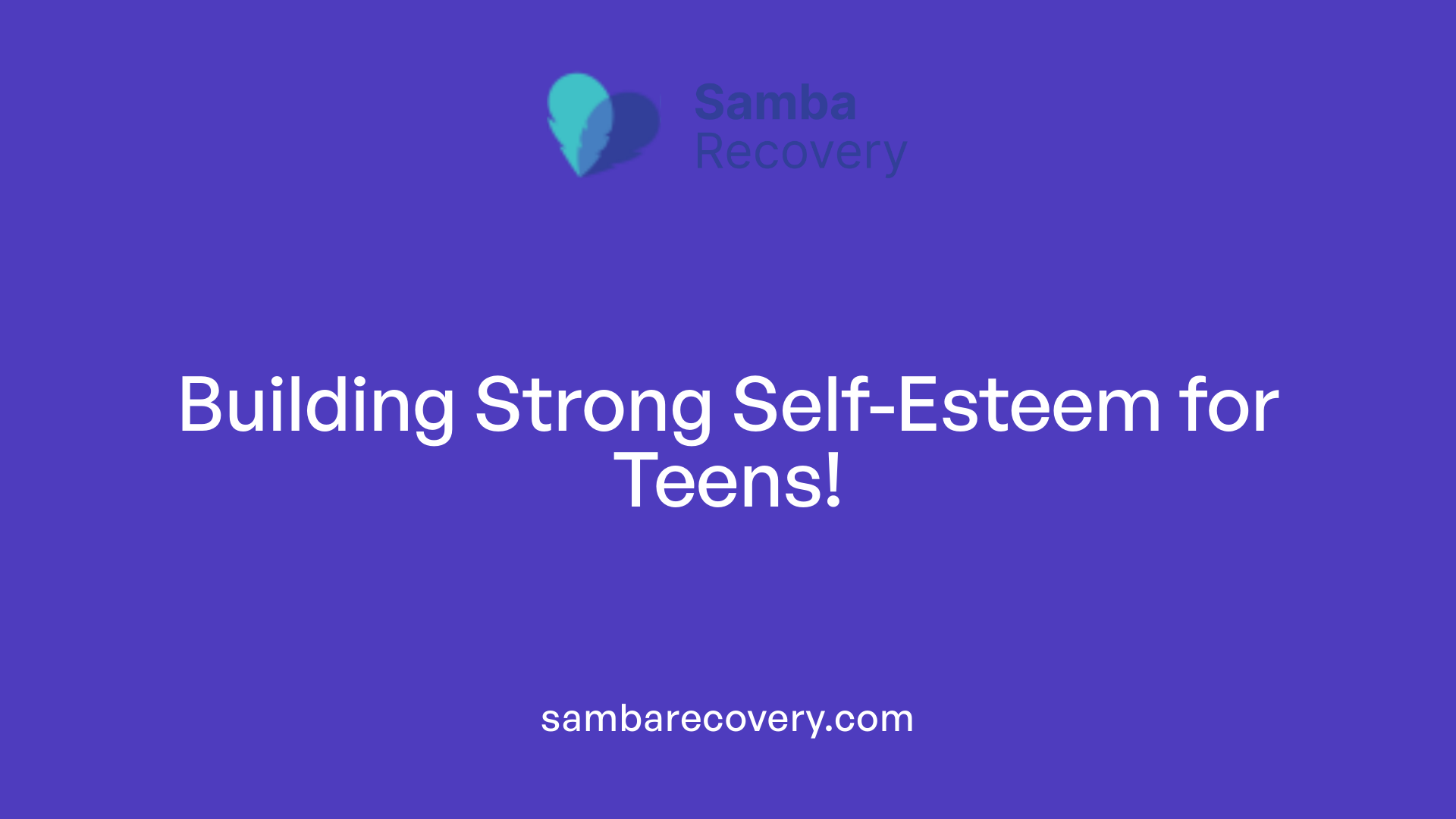
Building Self-Esteem in Teens
Fostering self-esteem in teenagers is crucial to help them navigate peer pressure effectively. Encouraging self-acceptance starts with recognizing their unique qualities and talents. Parents and educators can create supportive environments by celebrating achievements, big or small, reinforcing a positive self-image.
Open communication plays a vital role in building self-esteem. Teens should feel comfortable discussing their feelings and concerns without fear of judgment. Parents can promote this by actively listening and offering non-judgmental feedback, which strengthens trust and openness in the relationship.
Strategies That Enhance Self-Confidence
-
Effective Communication: Teaching teens assertive communication skills is fundamental. Effective communication allows them to express their thoughts and feelings openly, helping them set personal boundaries.
-
Decision-Making Skills: Enabling teens to make informed choices boosts their confidence. Parents can engage teens in discussions about the potential consequences of their decisions, allowing them to reflect critically on their actions.
-
Positive Role Models: Identifying and discussing positive role models can help teens understand healthy behaviors and decision-making. Observing others who handle peer pressure well can serve as powerful motivation.
-
Practice Refusal Skills: Role-playing peer pressure scenarios helps teens practice assertiveness. This preparation allows them to react confidently in real situations, making it easier to decline unwanted activities.
-
Build Supportive Networks: Encouraging friendships with like-minded peers fosters a supportive social circle, which can significantly reduce the influence of negative peer pressure.
-
Goals and Achievements: Setting achievable goals that focus on personal growth allows teens to celebrate their progress. Recognition and affirmation from parents can enhance their self-worth and encourage further success.
By cultivating resilience through these strategies, parents and educators equip teenagers with the necessary tools to resist peer pressure confidently, guiding them towards positive choices.
3. Teaching Assertiveness Skills
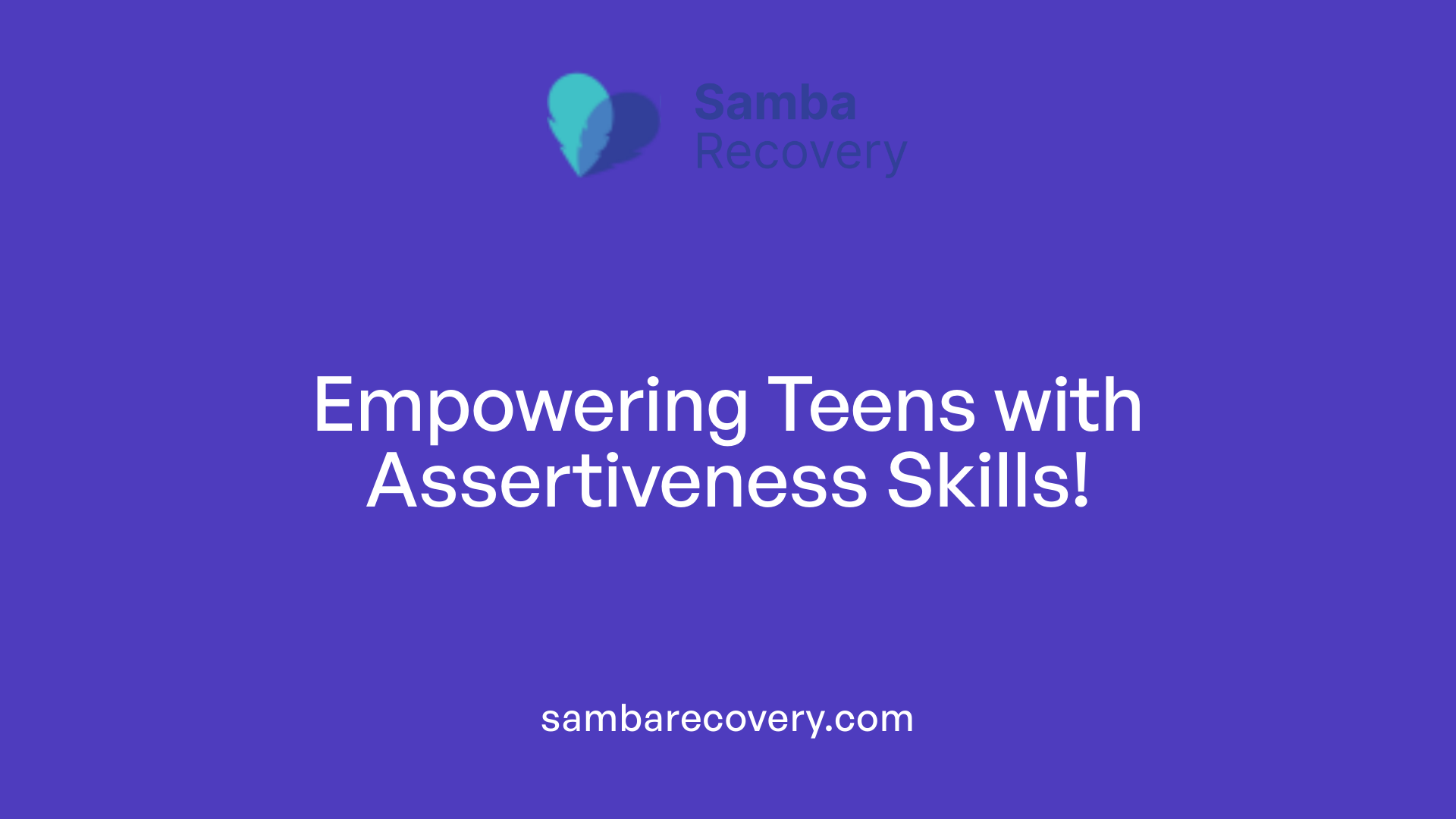
Developing Assertiveness
Building assertiveness in teenagers is essential for enabling them to stand firm against peer pressure. Assertive teenagers can express their feelings, opinions, and desires confidently without being aggressive. This self-confidence helps them communicate their boundaries effectively, allowing them to navigate social situations with ease. To cultivate this skill, role-playing scenarios can be particularly beneficial. These practice sessions provide a safe environment for teens to rehearse their responses to peer pressure, enhancing their readiness to assert themselves in real-life situations.
Importance of Saying ‘No’
Saying ‘no’ is a crucial aspect of resisting peer pressure. It is not just about the word itself; it’s about the delivery. Firm body language, direct eye contact, and a strong tone of voice can reinforce a refusal, making it harder for peers to counter the decision. Encouraging teens to articulate their values helps them understand why saying ‘no’ is not only acceptable but necessary in many circumstances. Additionally, practicing polite but firm refusals can mitigate concerns about harming social ties, allowing teens to maintain their integrity without feeling isolated.
| Strategy | Description | Benefits |
|---|---|---|
| Role-playing | Simulate peer pressure situations to practice responses. | Builds confidence, prepares teens. |
| Clear Communication | Teach them to express refusals assertively with eye contact and a firm tone. | Enhances assertiveness, clarity. |
| Value Reinforcement | Help teens identify their core values and practice stating why they refuse. | Strengthens convictions. |
| Positive Alternatives | Encourage suggesting alternative plans when declining offers from peers. | Reduces social tension, maintains friendships. |
By fostering assertive communication in teens, we equip them with tools to navigate the often challenging landscape of peer interactions.
4. Building a Support System
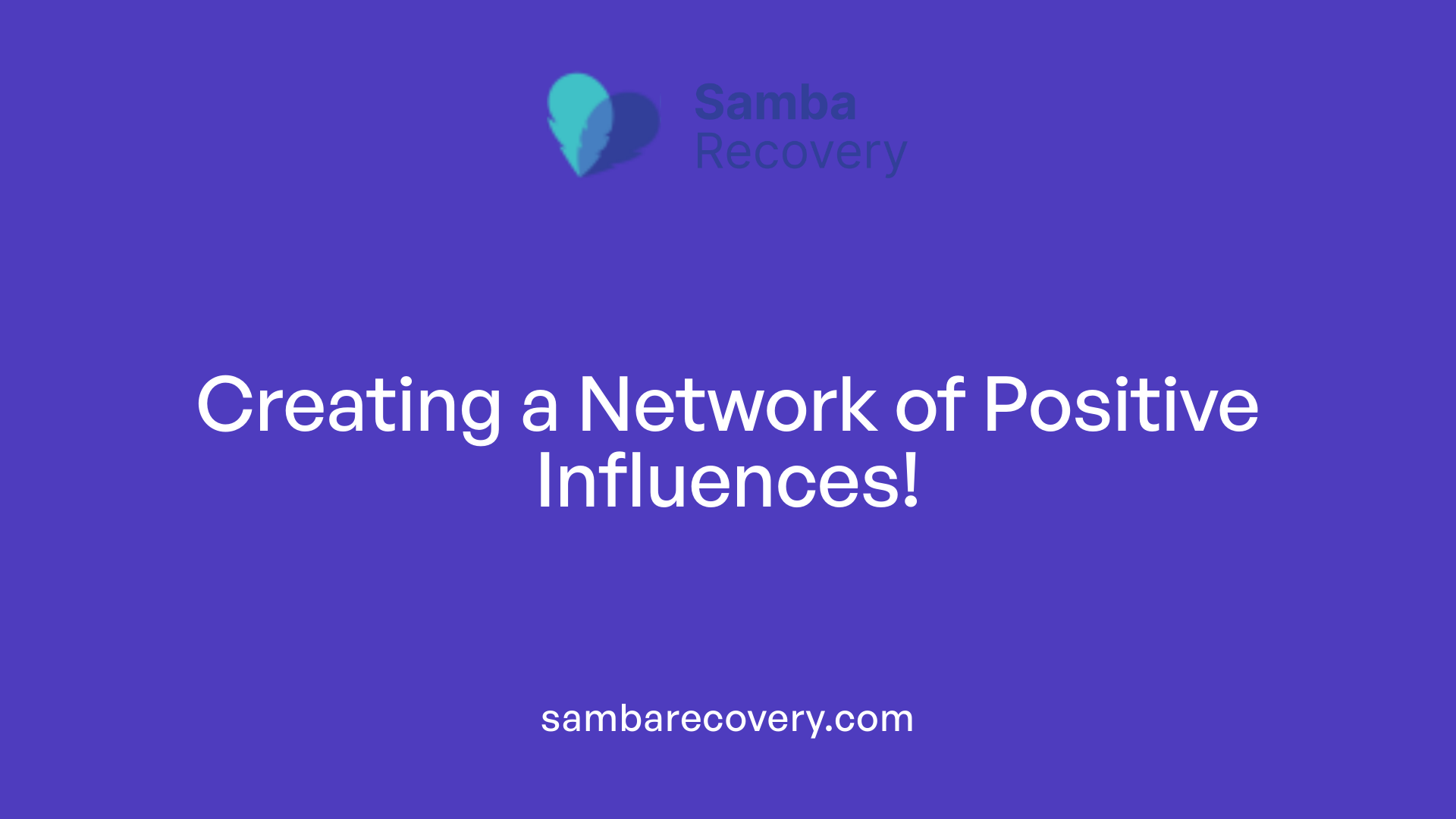
Creating a Network of Positive Influences
Having a strong support system is essential for teenagers navigating the challenges of peer pressure. The first step in this process is choosing friends wisely. Surrounding themselves with peers who share similar values and healthy behaviors can significantly reduce the risk of succumbing to negative influences. Encouragement from these friends can foster a sense of belonging without compromising personal integrity.
Another avenue to reinforce positive influences is through participation in structured activities such as sports, clubs, and community service. These settings not only provide opportunities for personal growth but also allow teens to engage with like-minded individuals. By immersing themselves in positive peer groups, teenagers cultivate resilience against negative peer pressure.
Role of Trusted Adults and Peers
The role of trusted adults cannot be overstated. Parents, teachers, and counselors can provide invaluable support by modeling healthy behaviors, maintaining open communication, and offering guidance when teenagers face difficult situations. It’s essential for these adults to establish a trusting relationship where teens feel safe discussing their experiences and seeking advice.
Furthermore, developing connections with other trusted adults, such as coaches or mentors, can broaden a teen’s support network. These relationships can provide additional perspectives and reinforce the idea that they are not alone in their struggles with peer pressure. Open dialogues about peer dynamics and encouraging self-affirmation from adults can empower teens to make choices that align with their values.
| Support Elements | Description | Benefits |
|---|---|---|
| Positive Peer Groups | Friends who share values and encourage healthy behaviors | Reduces susceptibility to negative influences |
| Structured Activities | Involvement in sports, clubs, or community service | Builds confidence and expands support circles |
| Trusted Adult Relationships | Guidance from parents, teachers, and mentors | Offers safety, advice, and reinforcement |
5. Practicing Decision-Making Competence
Importance of Decision-Making Skills
Effective decision-making skills are vital tools for teens navigating the turbulent waters of adolescence. When faced with peer pressure, the ability to evaluate choices critically becomes essential. Teens often experience competing desires—the need for social acceptance versus the desire to stay true to themselves. Strong decision-making skills empower teenagers to make choices aligned with their values and long-term goals, reducing the likelihood of succumbing to harmful influences.
Furthermore, such skills enhance their independence. Teens learn to weigh the pros and cons of different situations, which fosters self-confidence. By mastering decision-making, they become capable of asserting their boundaries firmly when confronted with peer pressure. Parents can play a significant part by encouraging discussions about the consequences of decisions and supporting their teens in making informed choices.
Practical Decision-Making Exercises
To develop decision-making competence among teens, engaging in practical exercises can be helpful. Here are a few effective strategies:
-
Role-Playing Scenarios: Simulate common peer pressure situations (like being offered alcohol). Role-playing allows teens to practice saying "no" assertively and enhances their confidence in real-life situations.
-
Weighing Options: Help teens list the potential outcomes of specific choices. Using a pros and cons chart can clarify their priorities and motivate informed decision-making.
-
Making Real-Life Choices: Encourage teens to take on small responsibilities, such as managing their own schedules or planning an outing. This practice reinforces their ability to make decisions independently.
-
Discussing Media Examples: Analyze characters in movies or books who face peer pressure. Discussing their choices and consequences will help teens critically assess how they would respond in similar situations.
-
Group Discussions: Foster an environment where teens can openly express their opinions and experiences related to peer pressure, creating a supportive dialogue that emphasizes shared strategies for making healthy choices.
By focusing on these exercises, parents and mentors can greatly assist teens in building their decision-making skills, equipping them to handle peer pressure with confidence and clarity.
6. Role of Positive Peer Influence
Distinguishing between positive and negative peer pressure
Peer pressure refers to the influence exerted by peers that can lead individuals to adapt their behaviors, beliefs, or choices to fit in. While it often has negative connotations associated with risky behaviors like substance abuse, not all peer pressure is detrimental. Positive peer pressure encourages teens to engage in constructive activities such as participating in sports, excelling in academics, or adopting healthy lifestyle choices. These supportive influences can bolster a teenager’s confidence and motivation.
Leveraging positive peer influences
To utilize positive peer pressure effectively, it’s crucial for parents and guardians to foster environments where teens can surround themselves with peers who contribute to healthy choices. Encouragement from friends to pursue academic excellence or join community service initiatives can lead to beneficial outcomes.
Here are some strategies to help utilize positive peer pressure:
- Encourage participation in healthy activities: Engage teens in sports, clubs, or volunteer work that promote teamwork and responsibility.
- Focus on goal-setting: Help teens set realistic objectives that align with their interests, leading to success through encouragement from supportive friends.
- Teach the value of choice: Discuss the importance of selecting friends wisely to surround themselves with peers who share similar values and aspirations.
Positive peer influence strengthens resilience and offers teens a solid support network, empowering them to make informed choices amidst societal pressures.
7. Managing Stress and Anxiety
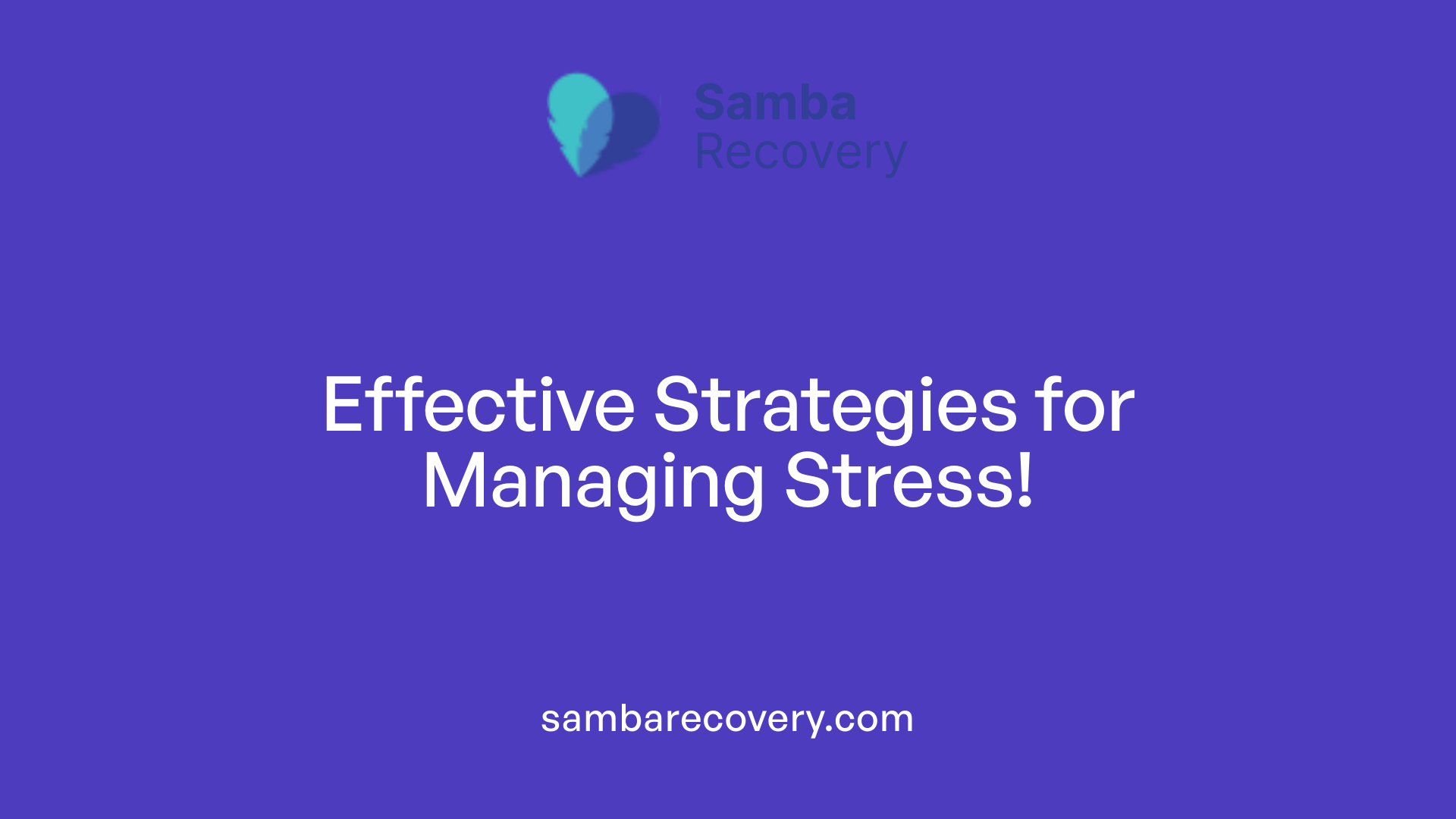
Stress Reduction Techniques for Teens
Managing stress and anxiety is essential for teens, especially when navigating peer pressure. Here are some effective techniques:
- Mindfulness and Meditation: Practicing mindfulness helps teens focus on the present and reduce anxiety. Techniques such as deep breathing or guided meditation can be particularly beneficial.
- Physical Activity: Engaging in sports or simply walking can help alleviate stress by releasing endorphins, which are natural mood lifters.
- Journaling: Writing about feelings and experiences can provide an emotional outlet, helping teens process their thoughts and reduce anxiety.
- Hobbies and Interests: Encouraging teens to pursue hobbies can provide a constructive distraction from stress and build confidence as they develop skills.
Coping with Peer Pressure Stress
Dealing with peer pressure can lead to significant stress for teens. Here are strategies to help manage this:
- Seek Social Support: Surrounding oneself with friends who share similar values can provide emotional backing and make it easier to resist negative influences.
- Practice Assertiveness: Building skills to say no confidently can empower teens to withstand peer pressure, reinforcing their beliefs and values.
- Establish Boundaries: Encouraging teens to set clear boundaries helps them maintain their integrity during challenging situations.
- Open Communication: Fostering an environment where teens can openly discuss their feelings about peer pressure enhances their resilience and coping mechanisms.
Incorporating these strategies can significantly help teens manage stress and make healthier choices when faced with peer pressure.
8. Using Technology to Build Emotional Resilience
Mental Health Apps as Resources
In today’s digital age, mental health apps provide valuable support for teenagers navigating peer pressure and emotional challenges. Applications like ‘Let’s Get Happi’ help teens improve their emotional well-being through interactive features, personalized coping strategies, and mindfulness exercises. These tools can facilitate private journaling, mood tracking, and guided meditations that promote self-reflection and emotional management.
Technology’s Role in Emotional Support
Moreover, technology can enhance communication between teens and supportive figures in their lives. Through messaging and video calls, teens can reach out to parents, teachers, or counselors more easily. This open dialogue is crucial for discussing the pressures they face, fostering a sense of belonging in a potentially isolating world.
Table of Useful Features in Mental Health Apps
| Feature | Description | Benefit |
|---|---|---|
| Mood Tracking | Allows users to log daily emotions | Helps identify triggers and patterns |
| Mindfulness Exercises | Guided sessions for relaxation and focus | Reduces stress and anxiety |
| Supportive Communities | Safe spaces for peer support | Encourages sharing experiences and coping strategies |
Utilizing these resources equips teens with practical tools to build resilience against peer pressure and fosters healthier emotional development.
Exploring Informational Resources
What are some reliable informational resources on tools to help teenagers cope with peer pressure?
There are numerous credible resources available to assist adolescents in navigating peer pressure. Books and online articles on adolescent psychology delve into the complexities of peer influence, outlining both its positive outcomes and risks. These materials typically offer practical strategies to help teens manage challenging situations and enhance their decision-making skills.
Educational websites focused on parenting and youth development provide invaluable guidance on fostering self-esteem and essential communication techniques. These sites often contain articles, expert advice, and tips to create a supportive environment where teens can discuss peer pressure openly with their parents.
Therapeutic approaches like Cognitive-Behavioral Therapy (CBT) can also be effective. CBT equips teens with coping mechanisms to handle stress and manage the pressures exerted by peers. Resources on mindfulness practices further aid in enhancing emotional resilience.
Educational tools for teen support
Organizations dedicated to youth development often organize workshops and create materials aimed at encouraging healthy peer interactions. These tools emphasize the importance of building supportive friendships and recognizing signs of negative peer pressure.
To summarize, here’s a digest of essential resources that can help teens:
| Resource Type | Description | Example |
|---|---|---|
| Books | Insightful literature on adolescent development and peer influence. | "The Teen Survival Guide to dating and Relating" by Dr. W.V. Travel. |
| Online Articles | Practical advice on handling peer pressure. | Articles on parenting websites and psychology blogs. |
| Therapeutic Approaches | Professional strategies like CBT to build resilience. | Local therapy clinics offering group sessions. |
| Workshops and Training | Programs for fostering peer relationships and resilience. | Community centers hosting empowerment workshops. |
By leveraging these resources, teens can feel more empowered to make informed choices and cultivate healthy relationships while resisting peer pressure.
Understanding Peer Pressure Dynamics
What are the dynamics of peer pressure and its effects on adolescents?
Peer pressure is a powerful force that shapes adolescent behavior, often leading young individuals to prioritize their friendships over familial connections. This inclination towards peer influence is characterized by two types of peer pressure:
- Positive Peer Pressure: This form encourages beneficial behaviors, such as participating in sports, engaging in academic pursuits, or promoting healthy lifestyle choices.
- Negative Peer Pressure: Conversely, negative peer pressure often prompts risky behaviors, including substance abuse, reckless driving, or engaging in harmful activities that can jeopardize health and safety.
Adolescents are particularly vulnerable to peer pressure due to the ongoing development of their brains, especially the prefrontal cortex, which is essential for mature judgment and decision-making. This developmental stage, often spanning ages 10 to 19, heightens their propensity for risk-taking, as the immediate rewards of social acceptance seem more enticing.
The Impact of Peer Pressure on Decision-Making
The desire to fit in can lead teens to make choices they may not otherwise consider, such as:
- Using drugs or alcohol
- Skipping school or failing to complete assignments
- Adopting unhealthy habits for the sake of conformity
This heightened susceptibility is further influenced by social dynamics, including the pervasive impact of social media, which can amplify peer expectations and contribute to stress about fitting in.
To combat these pressures, fostering open communication with parents and nurturing high-quality friendships can serve as protective factors. Teens who feel supported at home and maintain friendships with peers who share their values are better equipped to navigate the complex landscape of peer influence, leading to positive outcomes in their overall health and well-being.
Supporting Teens in Peer Pressure Situations
How can parents effectively support their teens in dealing with peer pressure?
Parents play a crucial role in helping teens navigate the challenges of peer pressure. Open communication is essential; it allows for discussions about potential scenarios teens might encounter. By practicing responses together, parents can equip their teenagers with the skills needed to confidently handle peer influence.
Promoting decision-making skills is vital. Parents should encourage their teens to reflect on family values, understanding the importance of these values when faced with peer pressure. This foundation helps teens develop the strength to resist negative influences.
Assertiveness training is equally important. Parents can teach their teens strategies for walking away from uncomfortable situations and expressing refusals effectively. For instance, establishing a safe word or signal enables teens to ask for help discreetly when needed. It creates a safety net that contributes to their confidence in social settings.
Moreover, encouraging friendships with peers who share similar values significantly benefits teens facing peer pressure. A supportive peer group can reinforce positive behaviors and reaffirm personal goals. Parents should aim to maintain an emotional connection, assuring their teens that they are always available for support and guidance.
Empowering teen strategies
Empowering strategies for teens include role-playing scenarios that prepare them for real-life situations regarding peer pressure. Practicing assertive refusals and learning to navigate uncomfortable situations helps build resilience.
Encouraging mindfulness can aid teens in managing overwhelming feelings and promoting self-control in peer pressure moments. By focusing on their strengths and making informed decisions, they can ensure their choices reflect their values rather than succumbing to external pressure.
Collectively, these tools strengthen a teen’s ability to resist negative influences and navigate peer dynamics with confidence.
Empowering Teens with Practical Strategies
What practical coping strategies can empower teenagers in social situations?
Teenagers can equip themselves with various practical coping strategies to effectively handle peer pressure in social settings. Recognizing their feelings is the first step; when situations become uncomfortable, they must trust their instincts to set personal boundaries confidently.
Planning responses in advance can be invaluable. By rehearsing how to decline invitations or peer requests beforehand, teens feel more prepared and less pressured when the moment arises. Establishing a discreet exit plan, such as a code word to alert a friend or parent when they need help, can also provide an easy way out of uncomfortable situations.
Surrounding themselves with supportive friends who share similar values is critical. This positive peer influence encourages teens to stand firm in their decisions and promotes healthy behaviors. Having friends who can reinforce each other’s choices helps diminish the collective pressure to conform to negative behaviors.
Additionally, seeking guidance from trusted adults—like parents or teachers—fuels teens’ confidence and decision-making skills. Open and honest conversations about peer dynamics not only enhance understanding but also pave the way for healthier relationships and resilience against peer pressure.
Proactive Peer Pressure Solutions
Proactively addressing peer pressure in teens involves several proactive strategies. Teens should be encouraged to cultivate a supportive network of friends who encourage healthy activities. Engaging in extracurricular activities related to their interests can create positive distractions and lower the chances of negative influences.
Teaching assertiveness skills through role-play scenarios can prepare them for real-life peer pressure situations. Building self-awareness through mindfulness practices can help teens recognize their moods and reactions, allowing them to respond to peer pressure more thoughtfully.
Finally, discussing their experiences with trusted adults or peers can help alleviate feelings associated with peer pressure. These conversations often lead to valuable insights and strategies that empower teens to make informed and responsible choices.
Identifying Signs of Peer Pressure
Recognizing symptoms in teens
Peer pressure manifests in various ways, and being able to identify its signs is crucial for parents and guardians. One common indicator is sudden behavioral changes. For instance, a teenager might start acting differently around certain friends, adopting new habits or interests that were previously absent. Additionally, a growing obsession with personal appearance—like wearing the latest fashion or demanding to have specific brands—can signal they are trying to conform to peer standards.
Specific behavioral changes to watch for
Here are some specific signs that may indicate a teen is succumbing to peer pressure:
- Withdrawal from favorite activities: A previously active interest in hobbies might wane.
- Secrecy: Increased secretive behavior may indicate the teen is engaging in activities they know their parents wouldn’t approve of.
- Academic decline: A noticeable drop in school performance can be linked to distractions from social activities influenced by peers.
- Engaging in risky behaviors: This includes substance use like smoking or drinking, which may arise from the desire to fit in with peers.
Addressing peer influence
Open discussions about peer-related issues can empower teens to navigate the landscape of social pressures. Parents should encourage their teenagers to share their experiences without fear of judgment. This approach fosters a safe environment for discussion and help






